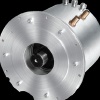Индустриален клъстер "Електромобили" - Учредители:








 |

|

|
| Актуално | За клъстера | Екип | Членове | Документи | Анализи | Услуги | Стани член | Награди | ССЕМ | Контакти |
ИКЕМ - Индустриален клъстер "Електромобили" | Вторник, 16.12.2025 | |
|
Driving Growth: How Clean Cars and Climate Policy Can Create Jobs
Preface Reducing America’s dependence on imported oil will not only enhance our national security, but it will create substantially more jobs than continuing on our current path of waste and unsustainable resource use. Reengineering the U.S. automobile fleet to use energy more efficiently will require new investments in advanced technology, increasing demand for skilled labor. Instead of presenting a threat to the auto industry, reigning in reliance on oil and cutting pollution from fossil fuels can demonstrably create jobs, accelerate innovation, and increase demand for advanced manufacturing. Yet, while it is clear that increasing America’s fuel economy can create more jobs, which nations will capture the economic benefits of this shift to a more fuel-efficient fleet, has yet to be determined. How Congress chooses to address comprehensive clean energy and climate legislation will strongly shape whether American workers enjoy the good jobs, competitive advantage, and sustained economic growth that will come with the move to a new clean energy economy. This study offers two key insights on the nature of clean energy jobs in the automobile sector, each with profound implications for policy makers and the economy. First, this paper documents that saving oil will create good jobs, not in the abstract, but directly by driving demand for specific additional manufactured components. The move to greater fuel economy means greater labor content per vehicle and higher employment across the fleet. This will include new investment in a host of incremental improvements to conventional gasoline powered internal combustion engines, from new controls for valves and timing, to variable speed transmissions and advanced electronics. It will also include entirely new systems like hybrid drive trains and advanced diesel engines. Together these investments add up. By 2020 this analysis shows that, all things being equal, supplying the U.S. automobile market with more efficient cars could provide a net gain of over 190,000 new jobs from improvements to fuel economy alone. The second finding is equally profound. While it is certain that the production of new technology will create demand for workers, where those jobs locate will be the product of policy choices. Of the over 190,000 jobs anticipated by 2020, the number of domestic jobs created could vary greatly. Fewer than 50,000 jobs might go to American workers, or, with different incentives, more than three times that number, as many as 150,000 U.S. workers, could find employment as a result of new investments in the engineering and production of the technology needed to improve fuel economy. It’s up to us which path we take. Many factors will shape where individual firms decide to produce fuel-efficient vehicles and their key components, and whether this new demand will be met through domestic sourcing or imports. But, it is clear that specific incentives can work to promote domestic production and drive new investment into existing plants and the skills of workers. Strong comprehensive energy and climate legislation will ensure sustained reductions in oil use and carbon emissions. At the same time, it can capture economic growth through specific manufacturing conversion incentives funded through dedicated carbon allowance revenues. Legislation that sets a firm declining limit on global warming pollution is uniquely suited to this task for two reasons. First, it sends a critical message to markets and investors. Secondly, it provides a steady revenue source to drive long term, economic and environmental gains in the domestic auto sector and to assist in retooling assembly lines and retraining workers so that the United States continues to have a globally competitive auto industry that produces advanced clean vehicles. This integrated clean energy and jobs approach can expand opportunities for both U.S. firms and American workers, particularly in hard hit industrial states like Michigan, Indiana, and Ohio. It is also worth noting that while the analysis undertaken in this paper shows substantial positive economic and jobs impacts from pursuing improved fuel economy, many additional benefits of energy independence do not even figure in this calculation. Therefore, as positive as this opportunity looks on paper, the real benefits go further. |
Продукти 
Комплектна система за задвижване на електромобилиСистемата за електрозадвижване обхваща гама с три основни типоразмера на ел. мощност със съответните компоненти - електромотор и контролер. oще ...Виж всички продуктиАнкета с продължение...
|
|
|
 ЕВРОПЕЙСКИ СЪЮЗ Европейски фонд за регионално развитие Инвестираме във вашето бъдеще |
 |
 ОПЕРАТИВНА ПРОГРАМА „Развитие на конкурентоспособността на българската икономика” 2007-2013 www.opcompetitiveness.bg |
|
Интернет страницата е създадена с финансовата подкрепа на ЕФРР, в рамките на проект „Развитие на Индустриален Клъстер Електромобили” по ДБФП К-02-2/28.09.2011 г. |
|||